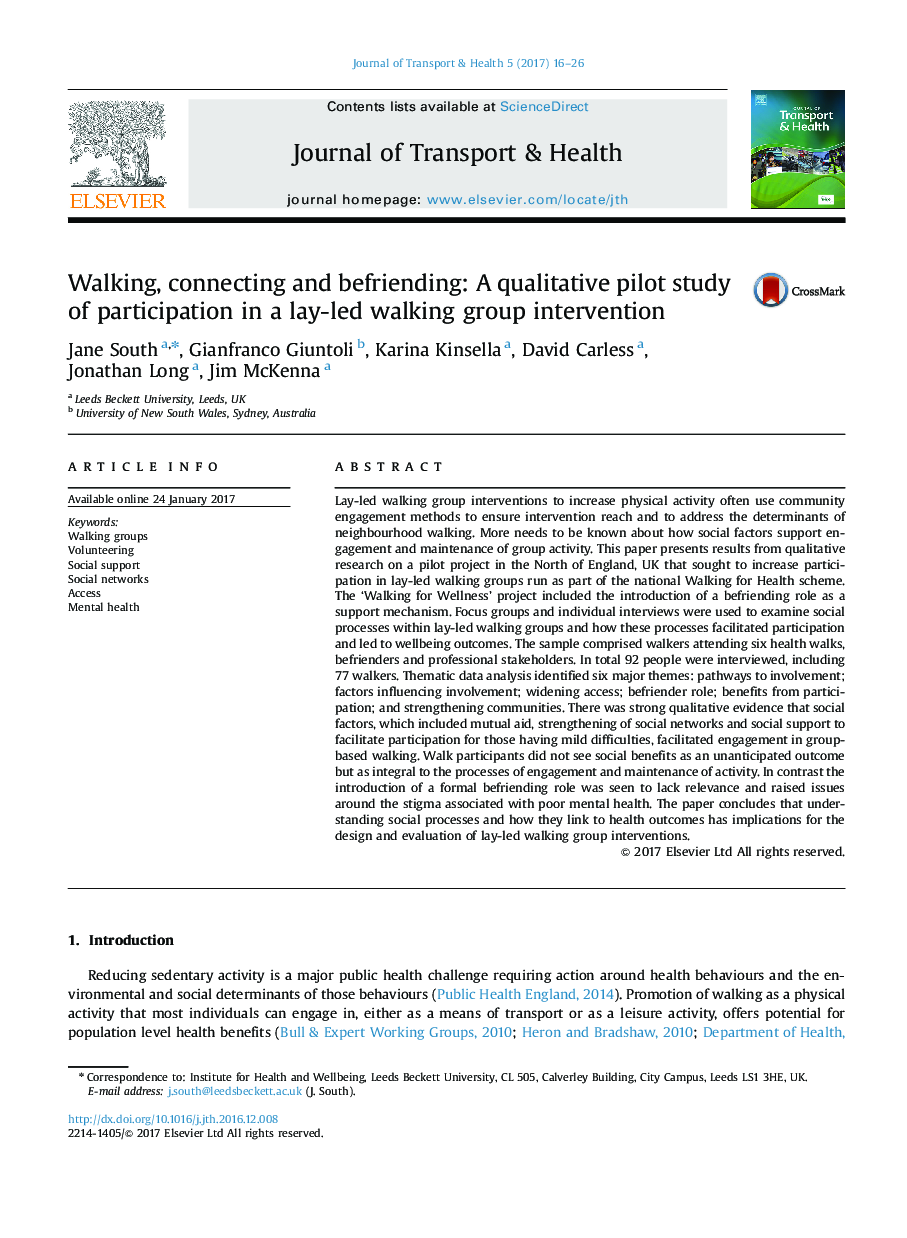| کد مقاله | کد نشریه | سال انتشار | مقاله انگلیسی | نسخه تمام متن |
|---|---|---|---|---|
| 5117832 | 1485456 | 2017 | 11 صفحه PDF | دانلود رایگان |
- Qualitative study on engagement in a lay-led walking group intervention.
- Walkers view social aspects as integral to experience and linked to wellbeing.
- New befriending role had low relevance as peer support given informally.
- Groups made adaptations for health needs but perceived stigma around mental health.
- Evidence that lay-led walking groups strengthened social networks.
Lay-led walking group interventions to increase physical activity often use community engagement methods to ensure intervention reach and to address the determinants of neighbourhood walking. More needs to be known about how social factors support engagement and maintenance of group activity. This paper presents results from qualitative research on a pilot project in the North of England, UK that sought to increase participation in lay-led walking groups run as part of the national Walking for Health scheme. The 'Walking for Wellness' project included the introduction of a befriending role as a support mechanism. Focus groups and individual interviews were used to examine social processes within lay-led walking groups and how these processes facilitated participation and led to wellbeing outcomes. The sample comprised walkers attending six health walks, befrienders and professional stakeholders. In total 92 people were interviewed, including 77 walkers. Thematic data analysis identified six major themes: pathways to involvement; factors influencing involvement; widening access; befriender role; benefits from participation; and strengthening communities. There was strong qualitative evidence that social factors, which included mutual aid, strengthening of social networks and social support to facilitate participation for those having mild difficulties, facilitated engagement in group-based walking. Walk participants did not see social benefits as an unanticipated outcome but as integral to the processes of engagement and maintenance of activity. In contrast the introduction of a formal befriending role was seen to lack relevance and raised issues around the stigma associated with poor mental health. The paper concludes that understanding social processes and how they link to health outcomes has implications for the design and evaluation of lay-led walking group interventions.
Journal: Journal of Transport & Health - Volume 5, June 2017, Pages 16-26
